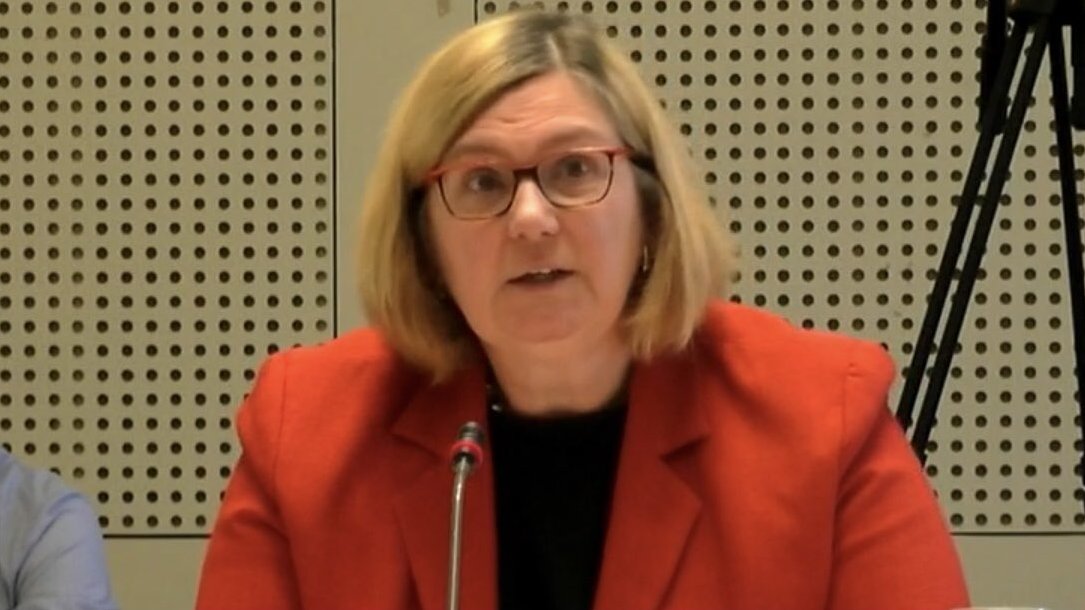Citizens' Assemblies: "Just go for it"

How do you deal with concerns of elected district politicians about randomly selected citizens' assemblies? "Just go for it," said Angelika Schöttler, mayor of the Berlin borough of Tempelhof-Schöneberg, at an expert hearing of the Berlin House of Representatives on 30 November 2020. The parliamentary groups of the state parliament had invited various experts to learn more about the citizens' assemblies that everyone has been talking about for some time.
Schöttler was able to report on experiences with seven citizens' assemblies in her district. These were held in the individual districts of Tempelhof-Schöneberg at the end of 2019/beginning of 2020. The topic was the future development of the districts and the ideas of the citizens.
"We walk differently through our neighbourhood"
"Citizens' assemblies are an interesting format for those who have not previously been involved in participation processes," said the mayor, explaining the purpose of such assemblies. In many cases, people are politically activated for the first time by participating in randomly selected citizens' meetings. "We walk through our neighbourhood differently," Schöttler quotes participants of the citizens' assemblies in the district. The activation effect is enormous. The citizens' assemblies also revealed communication deficits between the administration and the citizens. Many residents did not know about the district's services just around the corner.
The first citizens' assemblies had underestimated the amount of work and time that would be required, the mayor reported. In the meantime, the district has set up a staff unit for participation, which is also responsible for citizens' assemblies. Overall, however, Schöttler was very satisfied with the results of the citizens' assemblies that had been held. She is therefore already planning new procedures.
"New places for living democracy"
"Citizens' assemblies can be used to generate representative opinions," said Dr. Robert Vehrkamp of the Bertelsmann Foundation at the hearing. They are new places for living democracy. One advantage is that a greater acceptance of COVID-19 measures can be achieved in citizens' assemblies than in surveys, because a different starting point for evaluating the measures is created through information and a respectful discussion at eye level. Transparency and co-decision-making opportunities for the participants are important. However, it is not worth perfecting random selection. "The point is to produce a diversity of perspectives and viewpoints," says Vehrkamp.
Citizens' assemblies are an instrument for involving people even outside the group of participants, because a broad public discusses their issues, explained Antoine Vergne of the organisation "Missions Publiques" one advantage of such assemblies. Missions Publiques accompanies citizens' assemblies in France and examines their procedures and effects. The organisation was also involved in the national climate citizens' assembly, which recommended far-reaching climate protection measures in the summer of 2020. "The acceptance of citizens' assemblies is very high among the population," Vergne reported from his work. The activation effect is also great. "80-90 percent of the participants continue afterwards," Vergne explained.
Legal regulation
Oliver Wiedmann from Mehr Demokratie had similar things to say about the participants of the Citizens' Assembly on Democracy, which took place in Leipzig in 2019 on the initiative of his association. Afterwards, many participants became lobbyists on their own behalf. They arranged meetings with members of parliament to convince them of their democracy recommendations and to inform them about citizens' assemblies in general. If citizens' assemblies were to be regulated by law, it would be necessary to determine what happens to the results of citizens' assemblies. As cornerstones, he mentioned a right to be heard in parliament and the setting of deadlines for dealing with citizens' assembly recommendations. As in Baden-Wuerttemberg, a staff unit for citizen participation should organise the framework for randomly selected assemblies.
In response to the question of how to win over people for citizens' assemblies who are difficult to reach for participation procedures, Wiedmann recommended personally visiting those drawn by lot at home and paying compensation for expenses. Citizens' assemblies could also be linked to referendums by having such assemblies prepare information on the voting topic for those entitled to vote.
"Hearing unheard voices louder"
State Secretary Sawsan Chebli was enthusiastic about the hearing at the end. "The focus must be on hearing the unheard voices louder," she said, summing up her learning experience.
More Information: Recording of the Citizens' Assembly hearing on YouTube